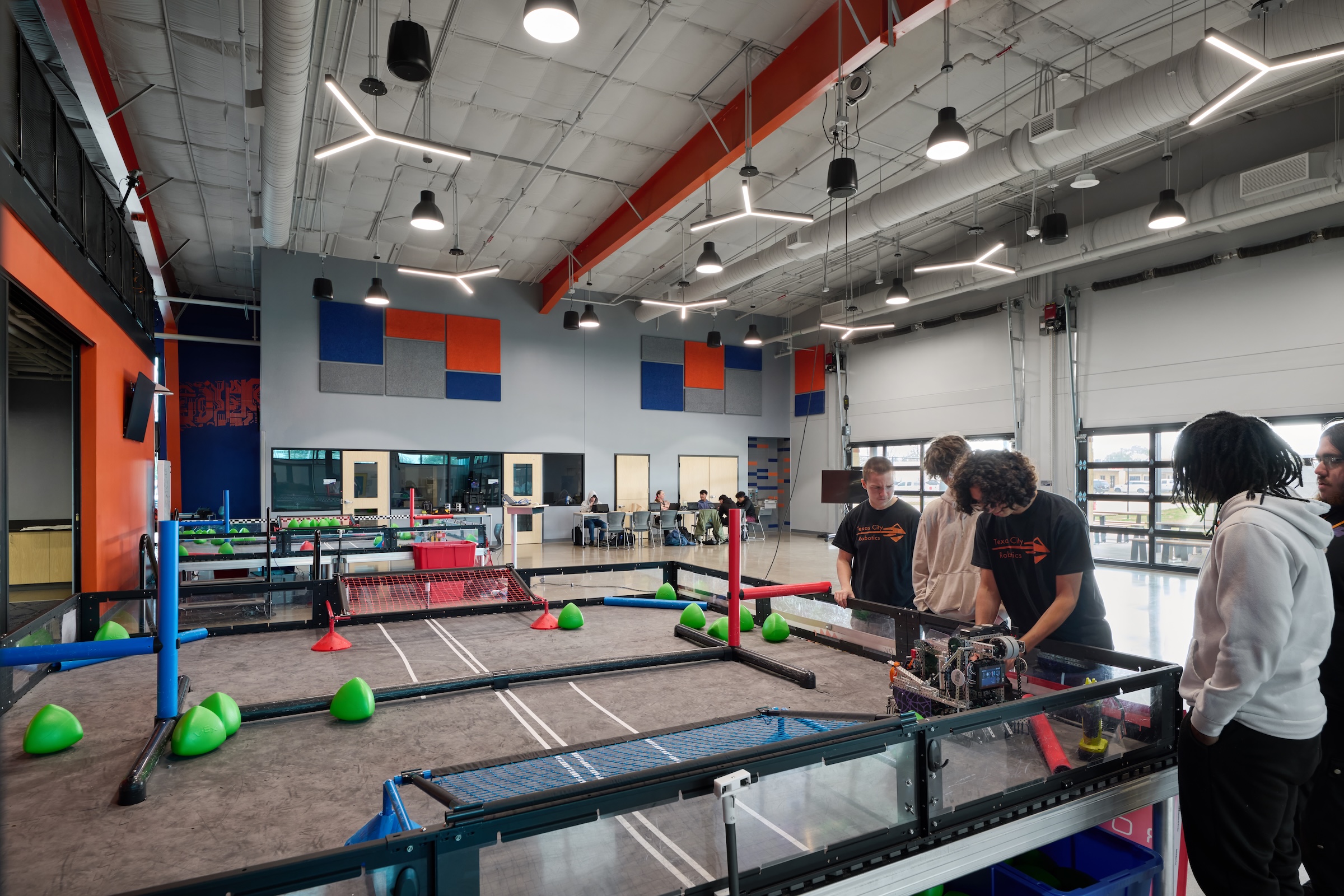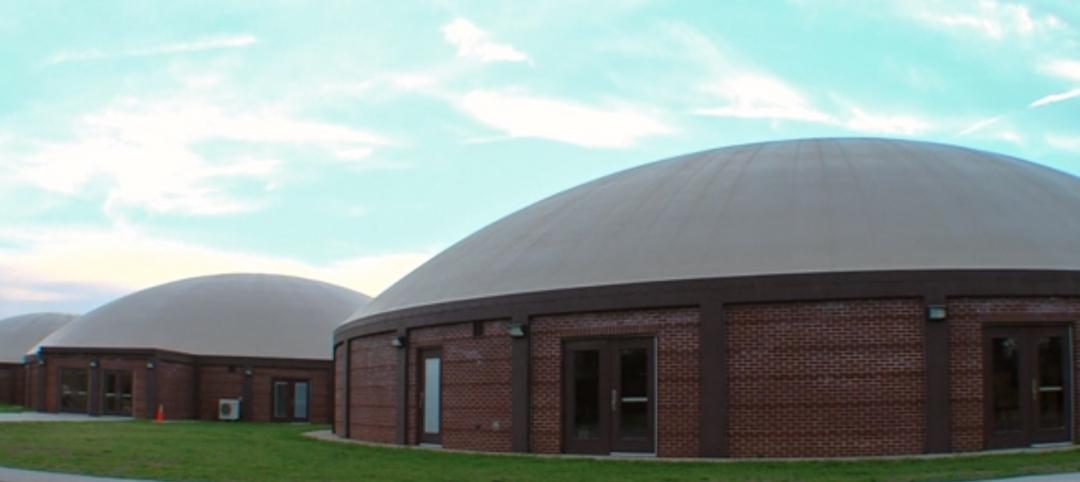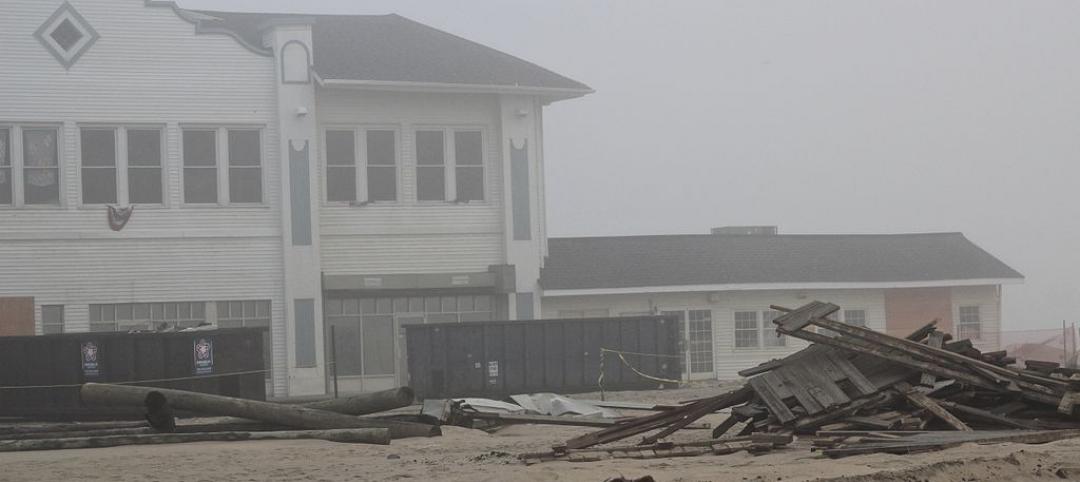A new K-12 STEM center in a Houston suburb is the venue for robotics learning and competitions along with education about other STEM subjects. An unused storage building was transformed into a lively K-12 school space for students to immerse themselves in STEM subjects.
Located in Texas City, the ISD Marathon STEM and Robotics Center is the first of its kind in the district. Designed and built by Pfluger Architects and Bartlett Cocke, the facility is accessible to all students in the district. It includes an open, flexible arena to host robotics competitions and a control room for students to manage cameras and audio during tournaments. The facility also includes a fabrication lab for metal and woodworking, classrooms for advanced engineering courses, and a maker space for elementary students to explore STEM subjects.
Large bay windows and overhead and sliding doors flood the spaces with natural light and create an inviting, open atmosphere. Each design element and material used throughout the space is thoughtfully crafted to support students’ curiosity and growth.
A partnership with Marathon Petroleum Corporation helped the district offset the cost of equipping the facility, creating a bridge between career and technical education and lucrative jobs in the industry. Marathon contributed $1 million to the project.
The facility has already hosted several competitions for the district’s award-winning robotics team and is hosting robotics camps for pre-K through 6th grade students this summer to expose young people to exciting STEM careers.
On the project team:
Owner and/or developer: Texas City Independent School District
Design architect: Pfluger Architects
Architect of record: Pfluger Architects
MEP engineer: DBR
Structural engineer: CSF Consulting
General contractor/construction manager: Bartlett Cocke
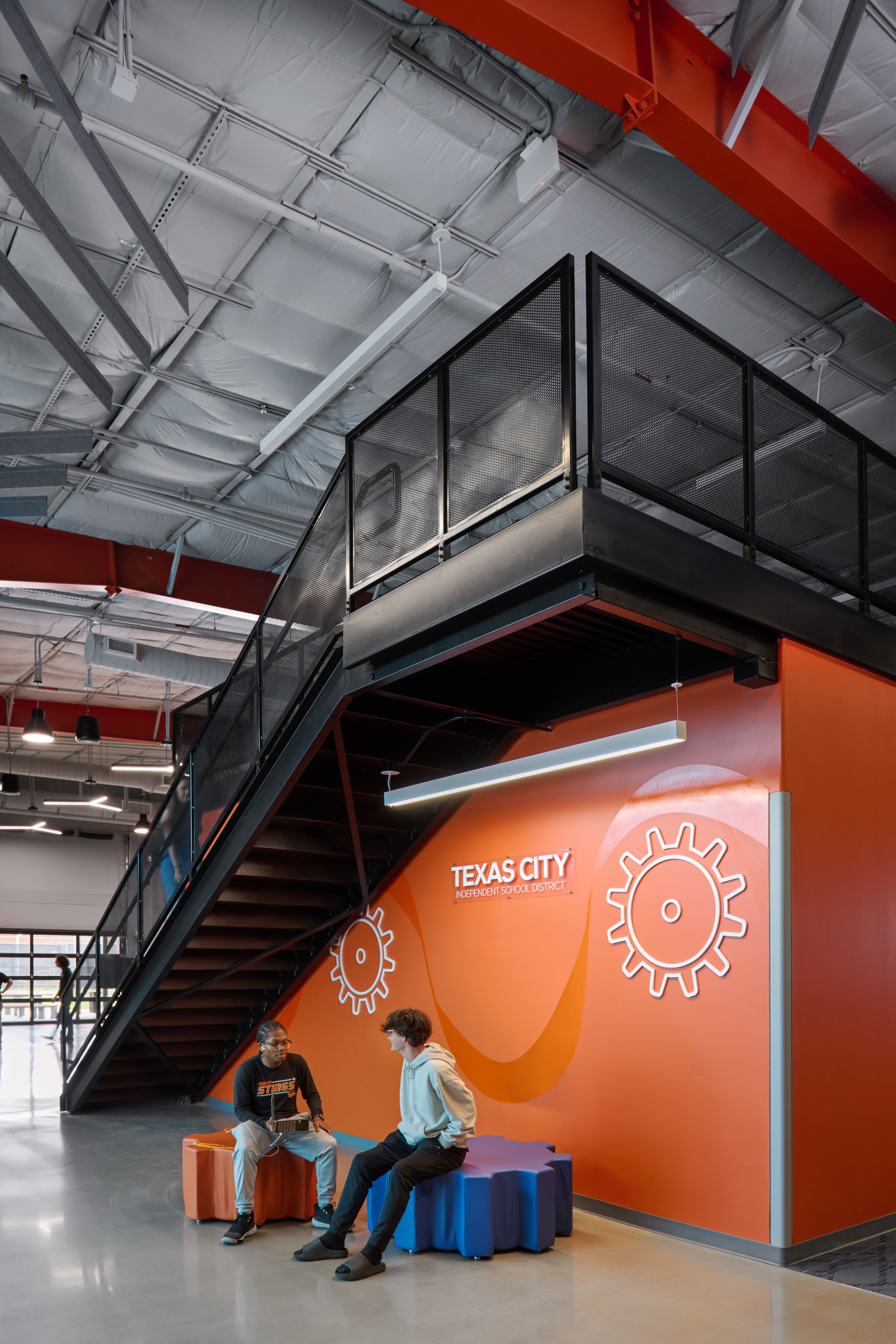
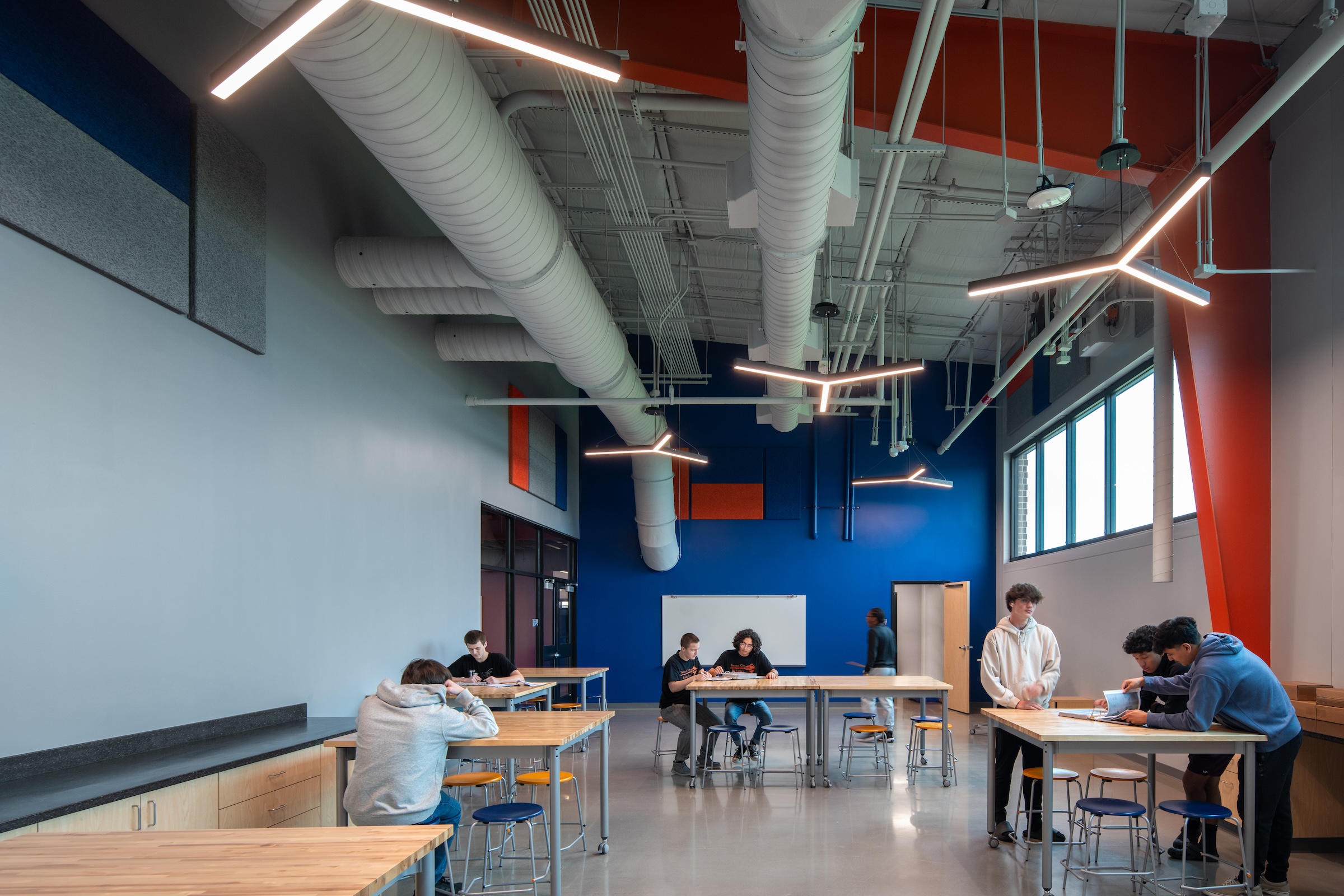
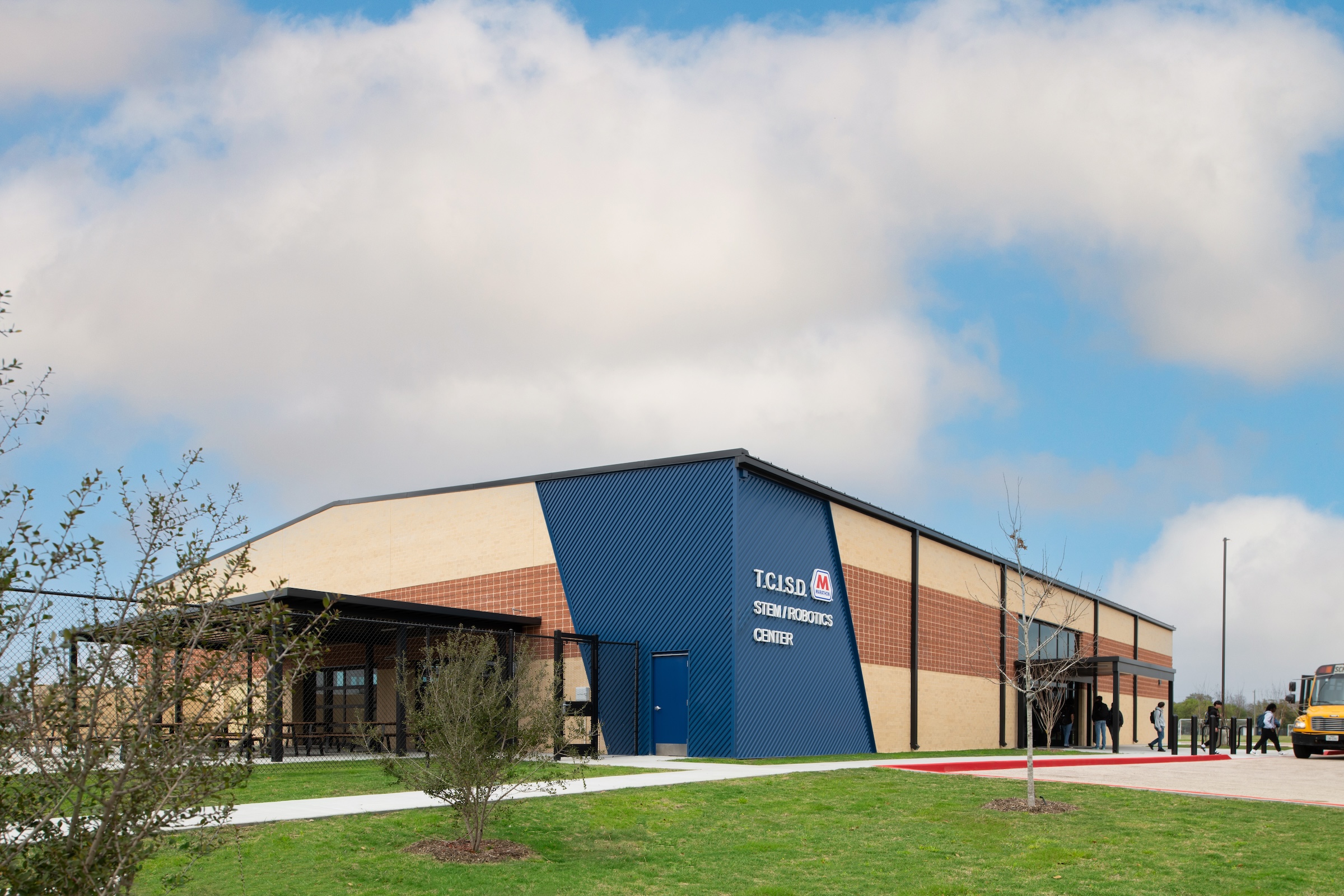
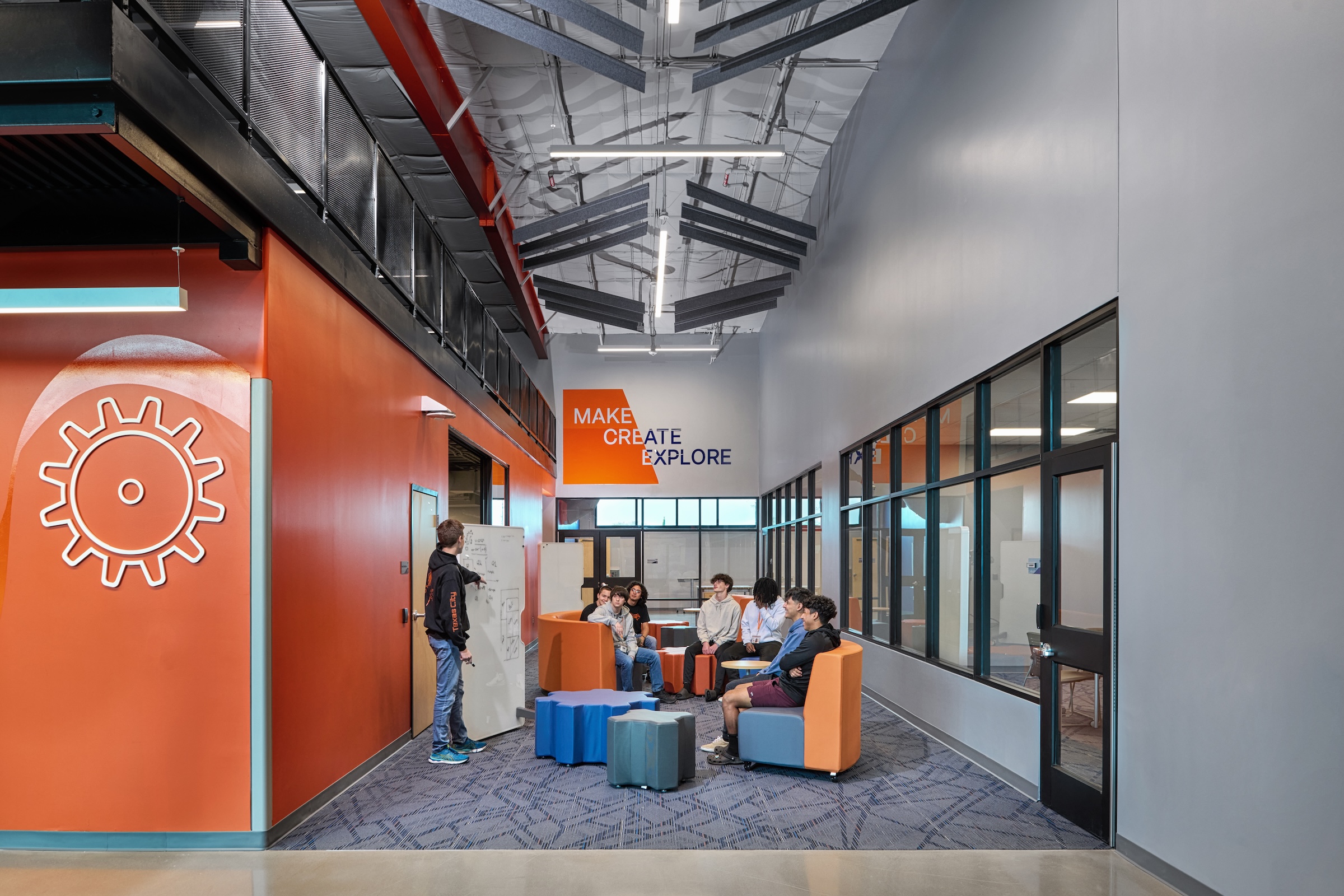
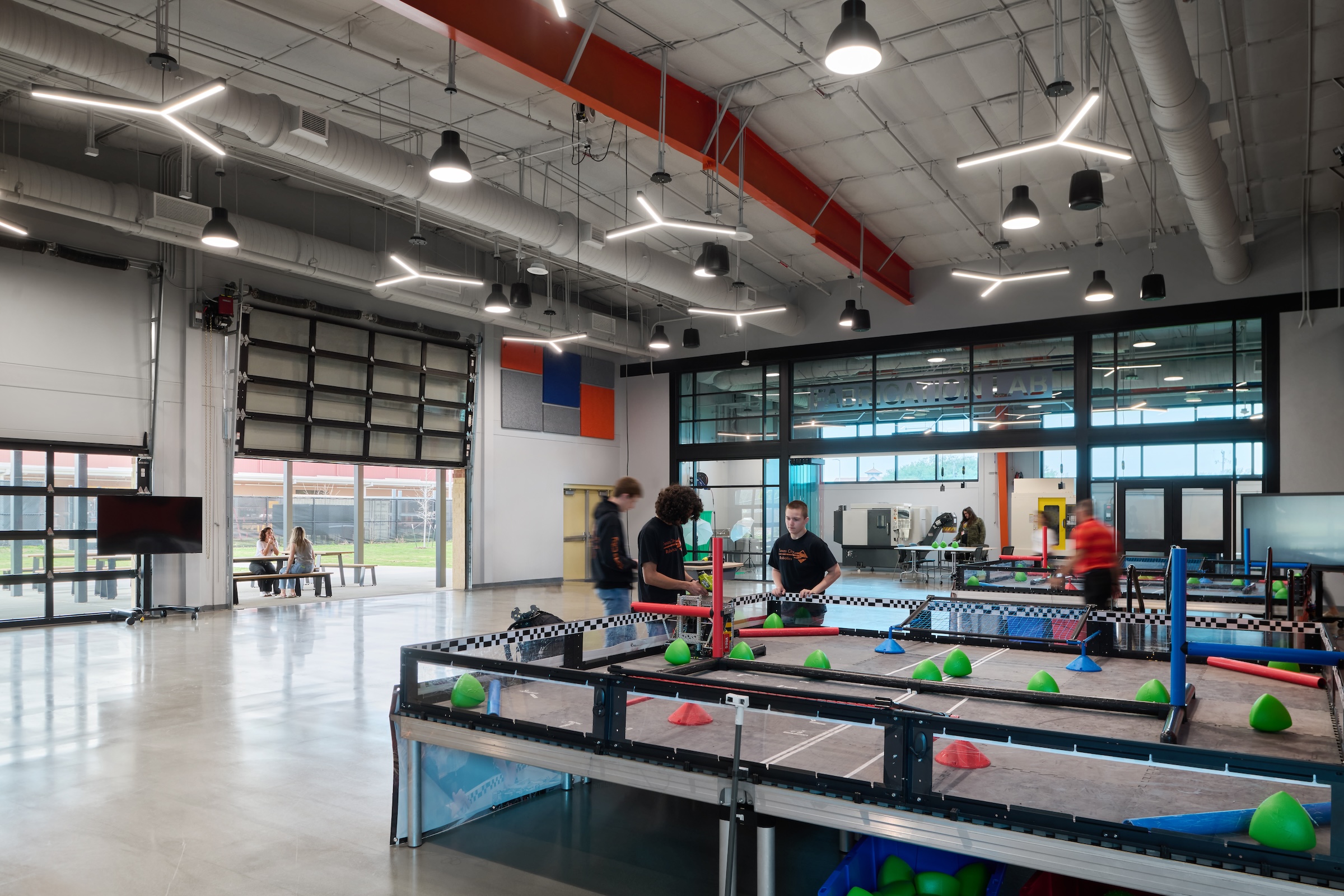
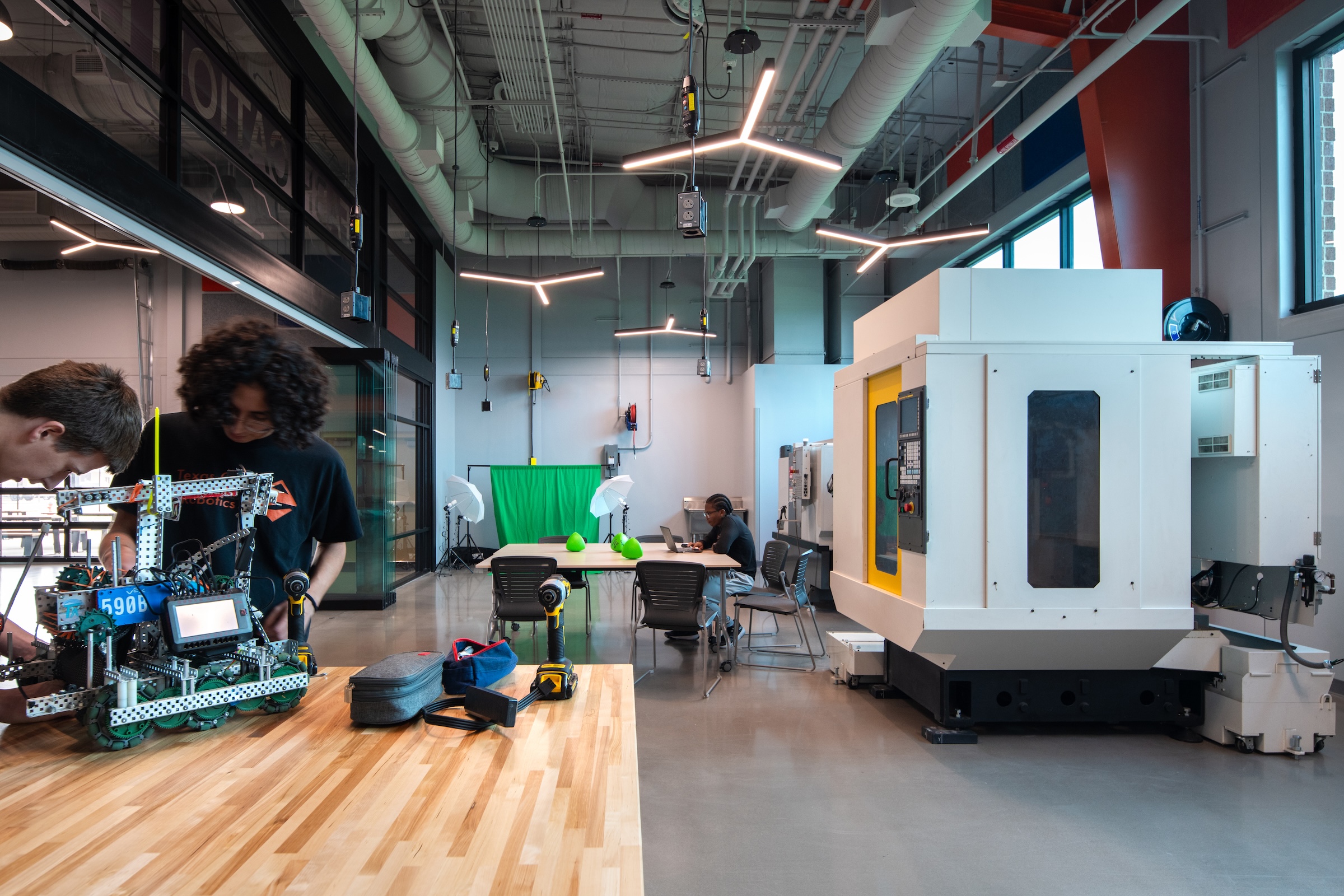
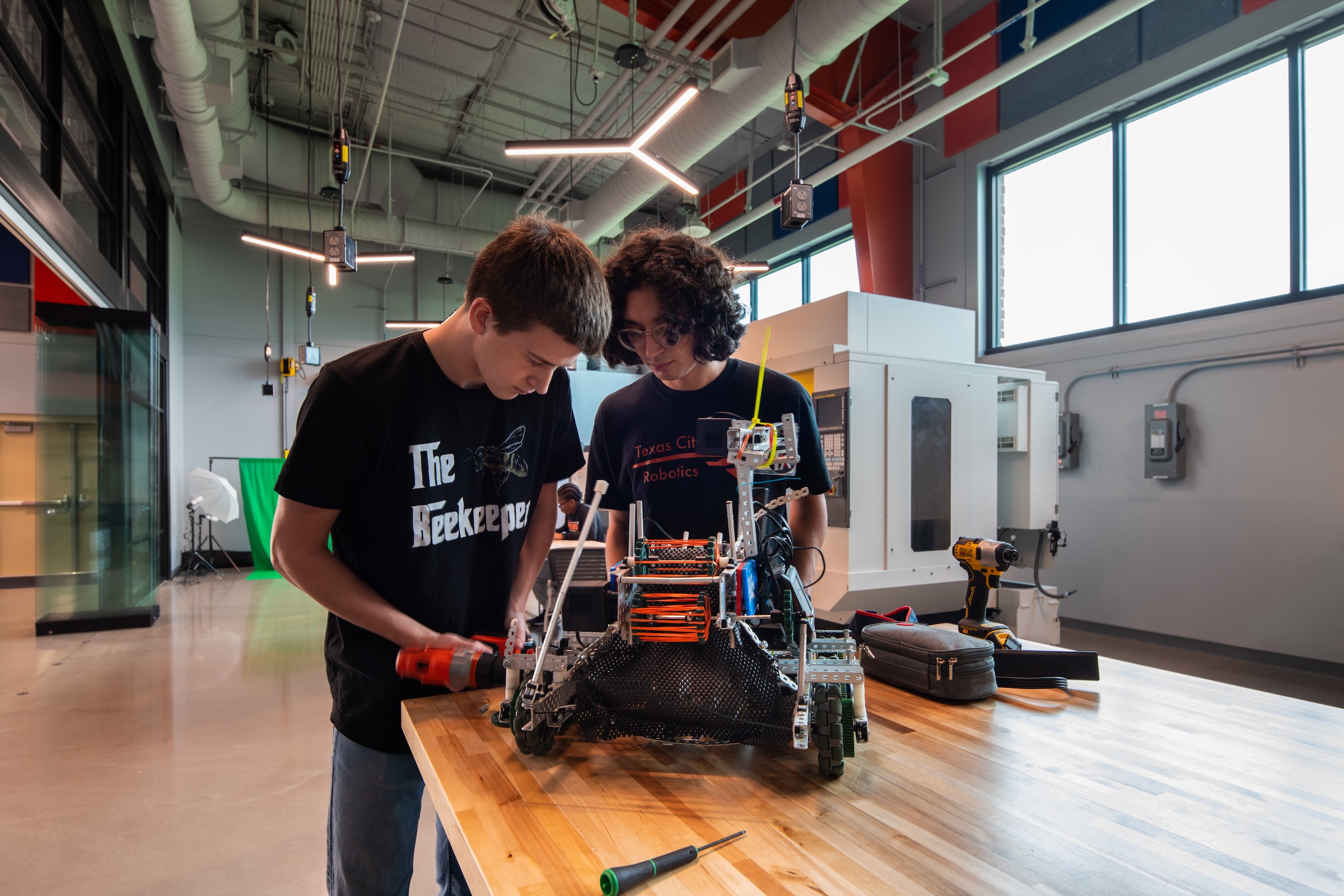
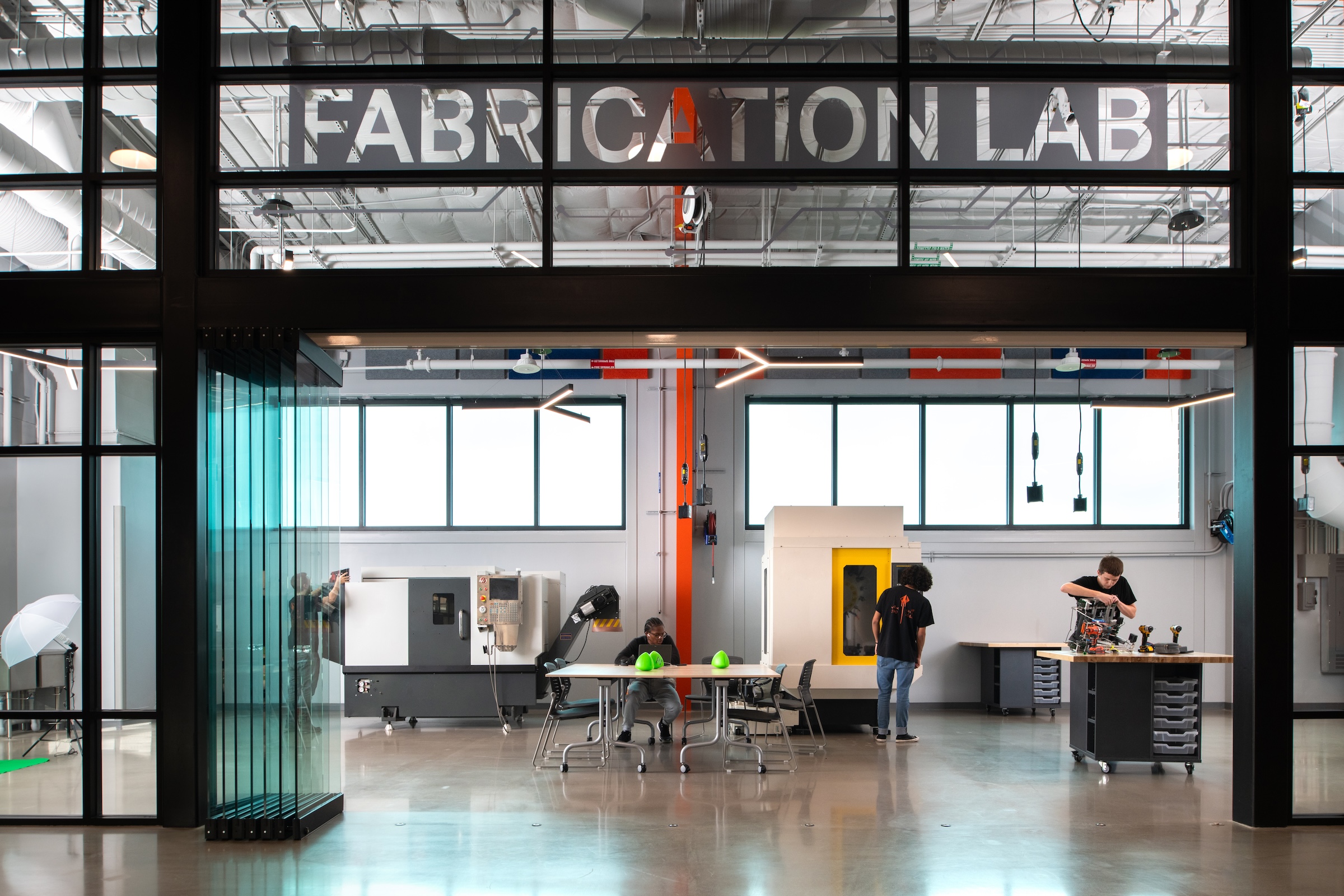
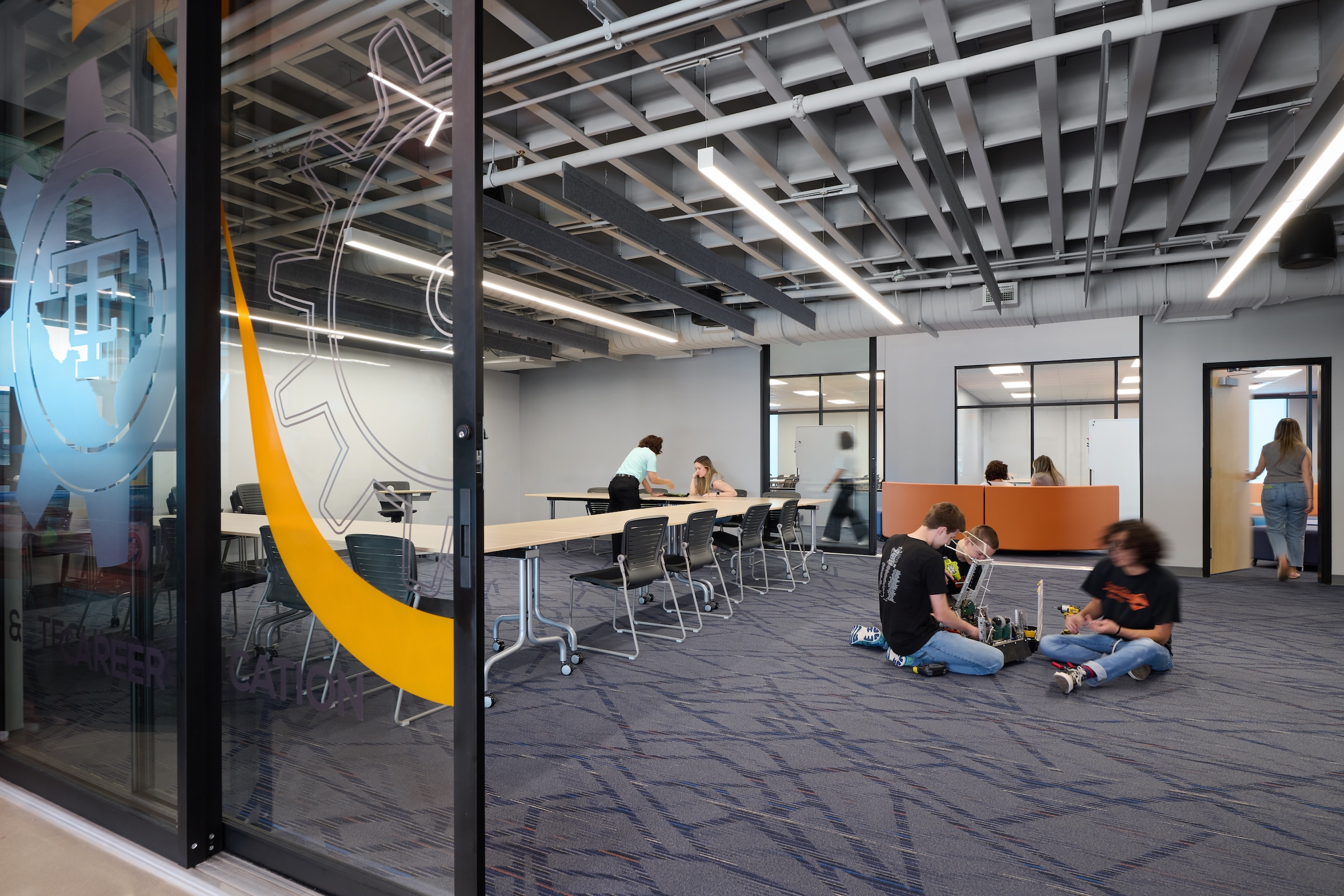
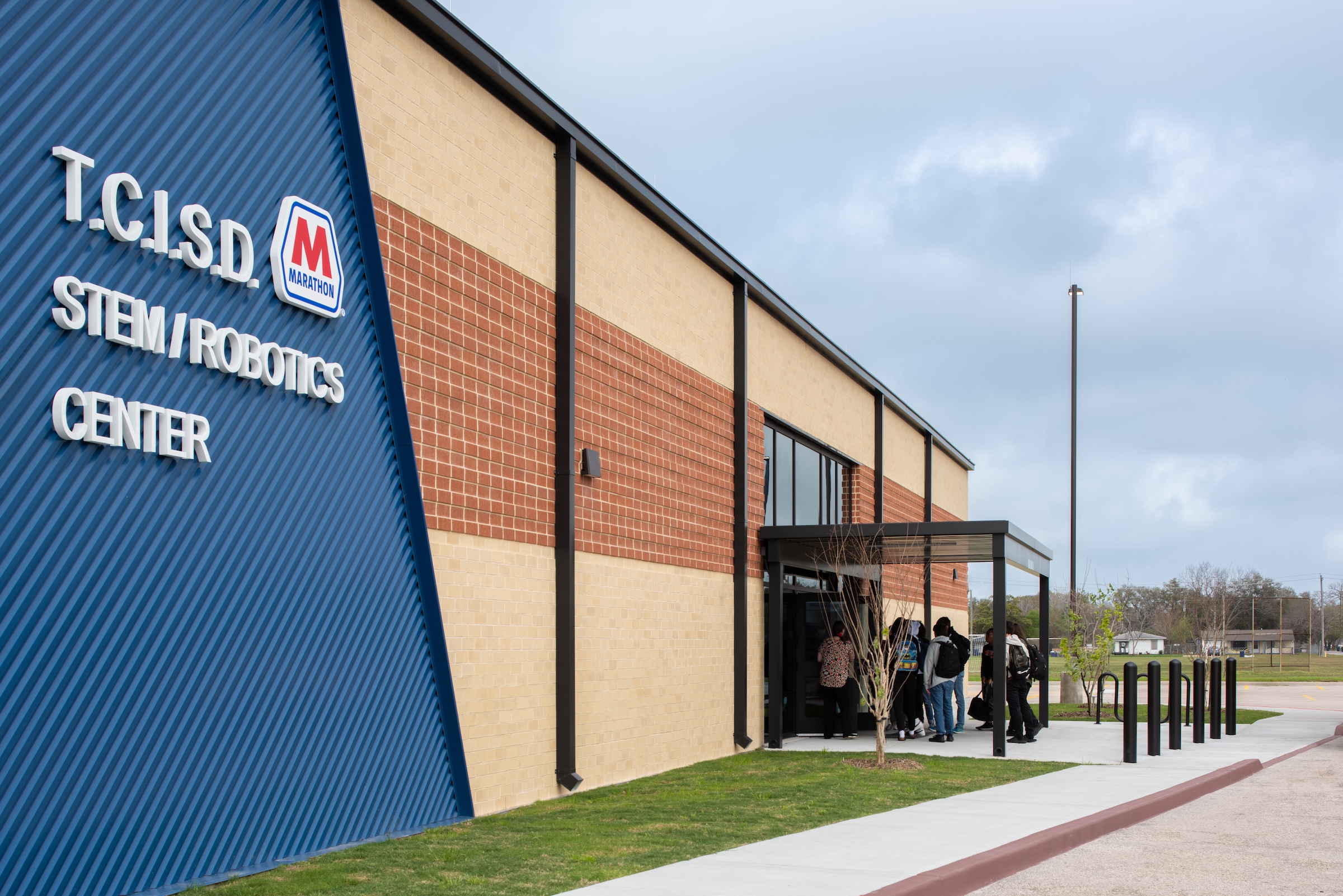
Related Stories
| Jun 12, 2014
Austrian university develops 'inflatable' concrete dome method
Constructing a concrete dome is a costly process, but this may change soon. A team from the Vienna University of Technology has developed a method that allows concrete domes to form with the use of air and steel cables instead of expensive, timber supporting structures.
| Jun 9, 2014
Green Building Initiative launches Green Globes for Sustainable Interiors program
The new program focuses exclusively on the sustainable design and construction of interior spaces in nonresidential buildings and can be pursued by both building owners and individual lessees of commercial spaces.
| May 29, 2014
7 cost-effective ways to make U.S. infrastructure more resilient
Moving critical elements to higher ground and designing for longer lifespans are just some of the ways cities and governments can make infrastructure more resilient to natural disasters and climate change, writes Richard Cavallaro, President of Skanska USA Civil.
| May 23, 2014
Top interior design trends: Gensler, HOK, FXFOWLE, Mancini Duffy weigh in
Tech-friendly furniture, “live walls,” sit-stand desks, and circadian lighting are among the emerging trends identified by leading interior designers.
| May 22, 2014
Big Data meets data centers – What the coming DCIM boom means to owners and Building Teams
The demand for sophisticated facility monitoring solutions has spurred a new market segment—data center infrastructure management (DCIM)—that is likely to impact the way data center projects are planned, designed, built, and operated.
| May 20, 2014
Kinetic Architecture: New book explores innovations in active façades
The book, co-authored by Arup's Russell Fortmeyer, illustrates the various ways architects, consultants, and engineers approach energy and comfort by manipulating air, water, and light through the layers of passive and active building envelope systems.
| May 19, 2014
What can architects learn from nature’s 3.8 billion years of experience?
In a new report, HOK and Biomimicry 3.8 partnered to study how lessons from the temperate broadleaf forest biome, which houses many of the world’s largest population centers, can inform the design of the built environment.
| May 15, 2014
'Virtually indestructible': Utah architect applies thin-shell dome concept for safer schools
At $94 a square foot and "virtually indestructible," some school districts in Utah are opting to build concrete dome schools in lieu of traditional structures.
| May 13, 2014
19 industry groups team to promote resilient planning and building materials
The industry associations, with more than 700,000 members generating almost $1 trillion in GDP, have issued a joint statement on resilience, pushing design and building solutions for disaster mitigation.
| May 11, 2014
Final call for entries: 2014 Giants 300 survey
BD+C's 2014 Giants 300 survey forms are due Wednesday, May 21. Survey results will be published in our July 2014 issue. The annual Giants 300 Report ranks the top AEC firms in commercial construction, by revenue.


